Current context:
In its most recent published annual report, the Mountjoy Prison Visiting Committee raised concerns about media reporting on prisoners.[331] This issue was raised by prisoners to the Committee in 2016. While the Committee noted a reduction in such media articles during 2017, it highlighted its continued concern at the leaking of information confidential to prisoners to the media. The leaking of information was also raised as an issue in unpublished chaplaincy reports.[332]
The Minister for Justice and Equality has highlighted the seriousness of breaches of prisoner privacy by prison staff:
Any member of the Irish Prison Service who discharges or divulges information to any third party or the media is not only contravening clear policy, but is also contravening the law. The divulging of information regarding prisoners’ private affairs is very damaging to prisoners, to the families of those who are in prison and to the Irish Prison Service. Such breaches have very real potential to compromise the safety and security of prisoners and prison staff. Breaches of this nature are an offence under the Prison (Disciplinary Code for Officers) Rules, 1996: ‘Breach of Confidence, that is to say, without proper authority, directly or indirectly disclosing, divulging, communicating, publishing or causing to be divulged, communicated or published any information not lawfully available to members of the public which comes to his or her knowledge from official sources or derives from his or her duties.’
If it is believed such a breach may have occurred, the governor of the prison concerned should carry out an investigation to ascertain whether an officer may have committed a breach under the Code of Discipline. The penalties under the code include: a reprimand; a reprimand plus a reduction in rank or a reduction in pay by deferment of one or more increments for one, three, six or 12 months or any longer period the governor may specify; or dismissal from the prison service.
The IPS has highlighted a number of steps it has taken to ensure all staff are aware of their obligations, including undertaking monthly random audits on the offender management system to ensure the purpose of the system is respected and adhered to by staff accessing personal data.[333]
In its 2018 annual report, one of 10 complaints upheld by the Press Ombudsman’s Office was in respect to the reporting of excessive details of a suicide, which was found to have breached the privacy principle in the Press Council of Ireland’s code of practice:[334]
A complaint was upheld that the Sunday Times breached Principle 5.4 (In the reporting of suicide excessive details of the means of suicide should be avoided) in an account of a report by prison authorities into the death by suicide of a prisoner who had a history of self-harm and repeated attempts to take his life. The Press Ombudsman decided that the inclusion of detailed information about how the prisoner killed himself was excessive. The Sunday Times appealed the decision to the Press Council. The appeal was carried over to 2019.[335]
In 2016, the Office of the Press Ombudsman produced a leaflet for prisoners, on how the Press Ombudsman can assist prisoners. The Office also made presentations to prisoners about their work in both 2018 and 2019.[336]
Media reporting of prisoners on temporary release is an issue that affects prisoners and their families. Further measures need to be introduced to raise awareness of the damaging impact media reporting can have on an individual and his/her family members during the reintegration process.
Indicators for Standard:
Indicators for Standard 15
Indicator: S15.1: The number of complaints about breaches of privacy made by prisoners and/or their families to the IPS, the Press Ombudsman and the Broadcasting Authority of Ireland.
- Information from May 2018 to May 2019 shows that the IPS received eight complaints from prisoners and their families related to alleged breaches of privacy.[337]
- In 2018 and up until July 2019, the Press Ombudsman received a total of 19 complaints.[338] However, none of these complaints alleged a breach of privacy; all related to Principle 1 of the code of practice: ‘truth and accuracy’.[339]
- The Broadcasting Authority of Ireland (BAI) does not record the number of complaints made by prisoners as a cohort. Complaints are recorded based on the complaint section or sections of a code that has been infringed.[340]
Analysis
Information sessions carried out in prisons by the Office of the Press Ombudsman may have helped to increase awareness of the Press Ombudsman’s work. However, a very low number of complaints were made by prisoners and their families to the IPS in relation to alleged breaches of privacy.[341] This is concerning and may indicate a lack of confidence in the system. Up until the end of 2018, no IPS employee has been formally disciplined as a result of breaches in prisoner privacy. In one case, the disciplinary process commenced but this has not yet concluded.
Status of Standard 15: Mixed

